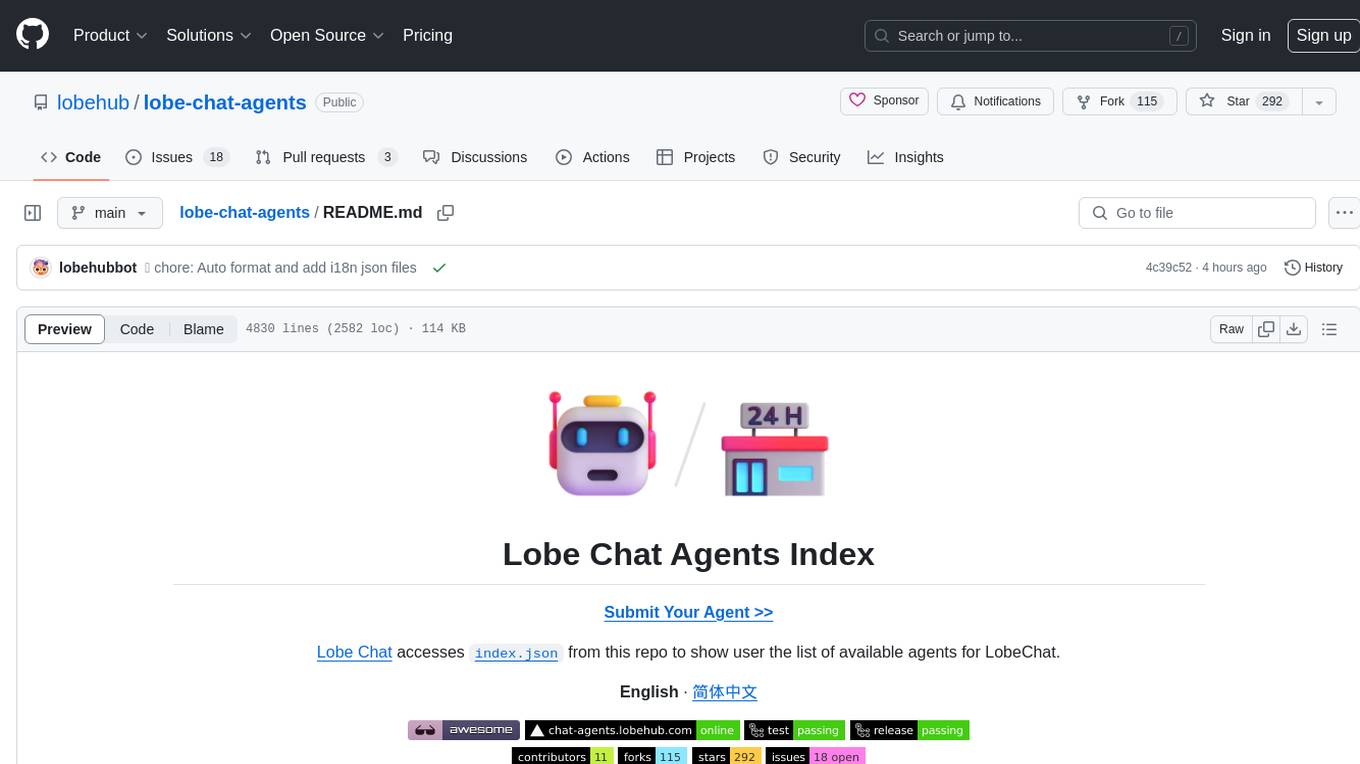
vocabulary-book-by-deepseek
vocabulary-book-by-deepseek|使用 DeepSeek 开发实现的四六级、考研、托福单词词汇库, 提供单词的词义、词根、例句、辅助记忆、助记图像等信息|小智晖的AI单词库。
Stars: 355

Vocabulary Book by DeepSeek is a manual for CET-4, postgraduate entrance examination, and TOEFL vocabulary, providing word meanings, roots, example sentences, mnemonic aids, and mnemonic images. The project uses Cline + DeepSeek-R1-16b for over 80% of the code to automatically encode the vocabulary manual. The generated manual includes vocabulary from A to Z for CET-4, CET-6, postgraduate entrance examination, and TOEFL, along with features to generate Anki cards and PDFs. The tool also allows for the creation of mnemonic images for each word and articles.
README:
使用 DeepSeek 开发实现的四六级、考研、托福 单词词库手册, 提供单词的词义、词根、例句、辅助记忆、助记图像等信息。
本项目 80% 以上代码采用 Cline + DeepSeek-R1-16b(本地部署) 自动编码完成。
生成的词库手册最终效果如下:
- ✅ 初高中词库
- ✅ 英语四级词库
- ✅ 英语六级词库
- ✅ 考研词库
- ✅ 托福词库
- 单词搜索
- 生成anki卡片
- 生成PDF
- 自定义单词本
cet4 原始单词数据路径:
data/cet4/
调用DeepSeek生成单词解释信息
- 串行处理
./prun.sh process_words.py
- 只处理一个文件
./prun.sh process_words.py a
- 并发处理所有文件
for letter in {a..z}; do
./prun.sh process_words.py ${letter} &
sleep 10
done生成每个单词的助记图像
./prun.sh gen_words_img.py
生成文章
./prun.sh gen_articles.py
本地启动
./scripts/run_local.sh
./start.sh
本项目 80% 以上代码采用 Cline + DeepSeek-R1-16b(本地部署) 自动编码完成。
作为一个独立开发者,除了日常的代码开发工作外,项目运行所需的各项成本(包括调用大模型的费用)均由我个人承担。
如果您觉得我的项目对您有所帮助,请通过下方式支持我:
- 捐赠支持: 若有意向提供捐助,感谢您的鼓励与支持!
- 扫码交流群: 欢迎加入我们的讨论社群,共同探讨如何更高效地学习英语、记忆单词,以及AI在语言学习中的应用。
 |
 |
|---|---|
后台回复 AI助记 加群交流 |
捐赠支持作者 |
For Tasks:
Click tags to check more tools for each tasksFor Jobs:
Alternative AI tools for vocabulary-book-by-deepseek
Similar Open Source Tools

vocabulary-book-by-deepseek
Vocabulary Book by DeepSeek is a manual for CET-4, postgraduate entrance examination, and TOEFL vocabulary, providing word meanings, roots, example sentences, mnemonic aids, and mnemonic images. The project uses Cline + DeepSeek-R1-16b for over 80% of the code to automatically encode the vocabulary manual. The generated manual includes vocabulary from A to Z for CET-4, CET-6, postgraduate entrance examination, and TOEFL, along with features to generate Anki cards and PDFs. The tool also allows for the creation of mnemonic images for each word and articles.
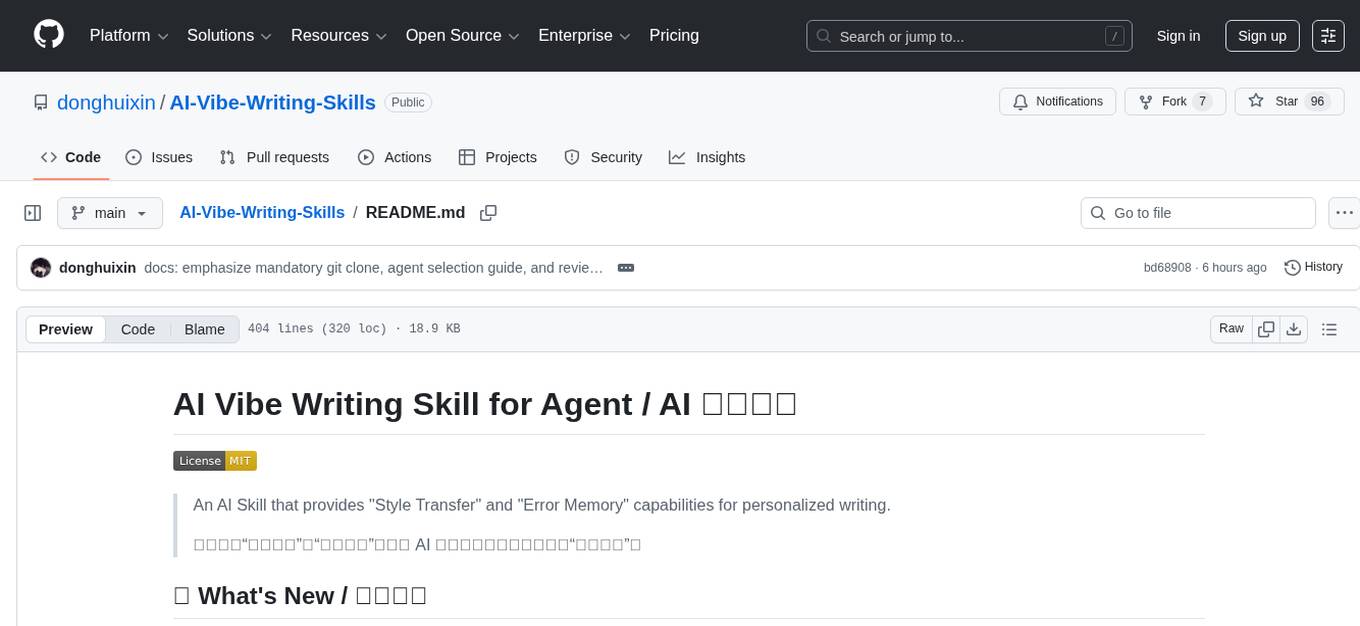
AI-Vibe-Writing-Skills
AI Vibe Writing Skills is an AI Skill that provides 'Style Transfer' and 'Error Memory' capabilities for personalized writing. It aims to assist in writing tasks by focusing on creativity, content refinement, and personalized style, rather than replacing the creative process. The tool offers features like style transfer, error memory, grammar check, long-term memory storage, writing knowledge bases, and multi-agent collaboration to enhance content production efficiency and quality.
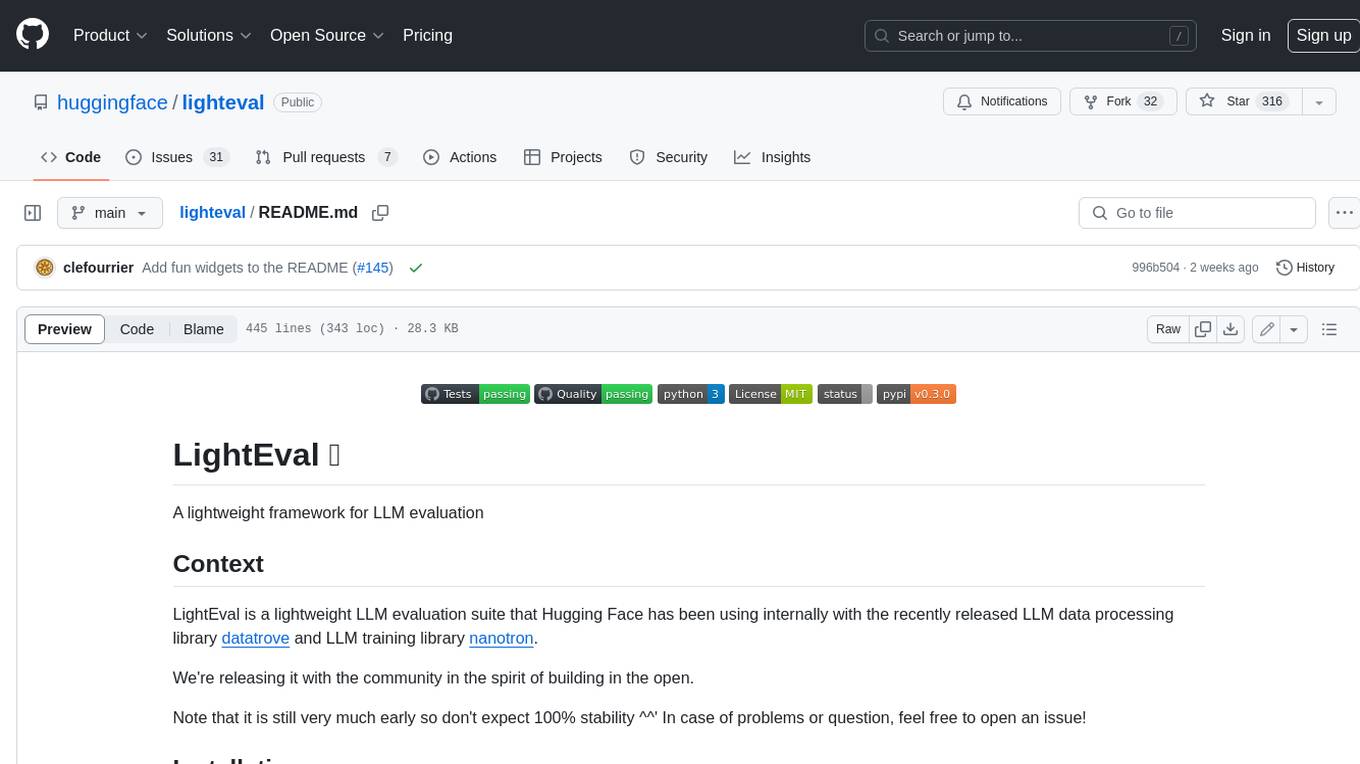
lighteval
LightEval is a lightweight LLM evaluation suite that Hugging Face has been using internally with the recently released LLM data processing library datatrove and LLM training library nanotron. We're releasing it with the community in the spirit of building in the open. Note that it is still very much early so don't expect 100% stability ^^' In case of problems or question, feel free to open an issue!
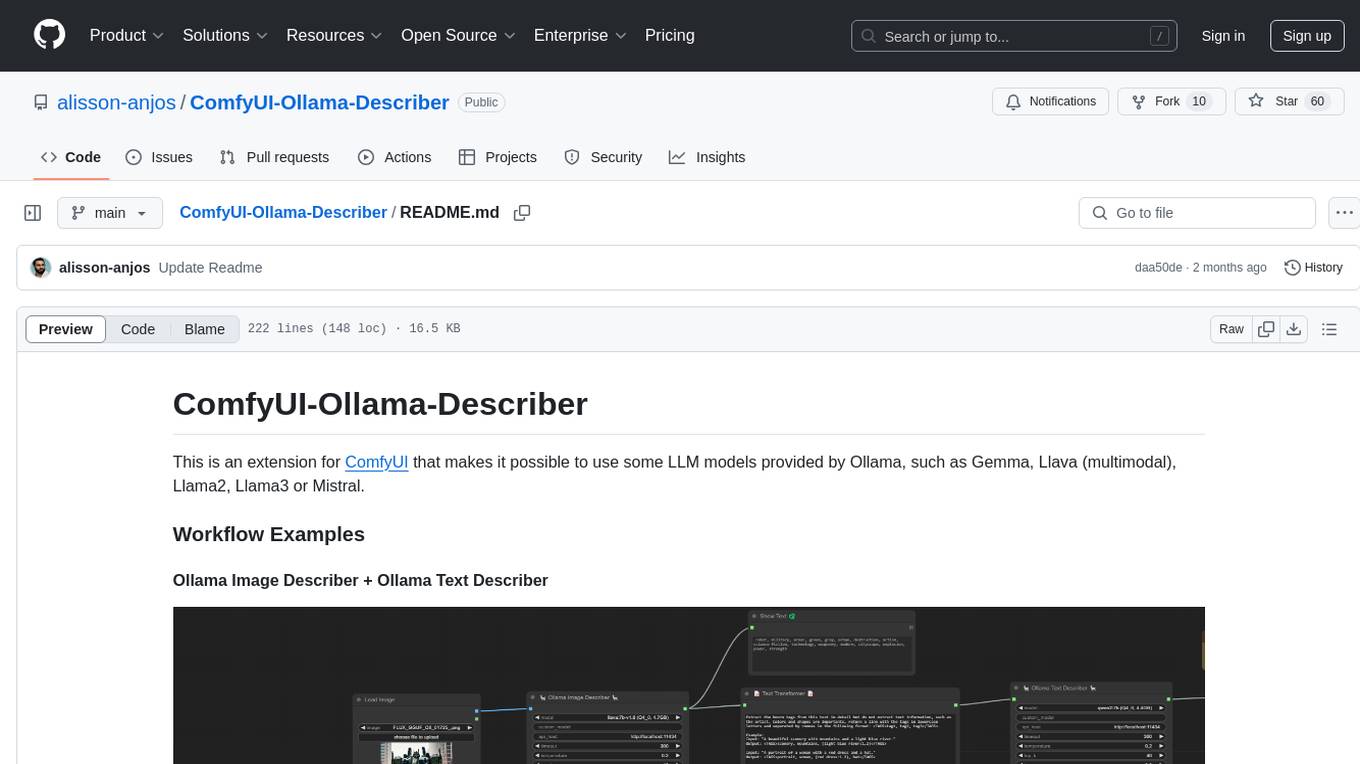
ComfyUI-Ollama-Describer
ComfyUI-Ollama-Describer is an extension for ComfyUI that enables the use of LLM models provided by Ollama, such as Gemma, Llava (multimodal), Llama2, Llama3, or Mistral. It requires the Ollama library for interacting with large-scale language models, supporting GPUs using CUDA and AMD GPUs on Windows, Linux, and Mac. The extension allows users to run Ollama through Docker and utilize NVIDIA GPUs for faster processing. It provides nodes for image description, text description, image captioning, and text transformation, with various customizable parameters for model selection, API communication, response generation, and model memory management.
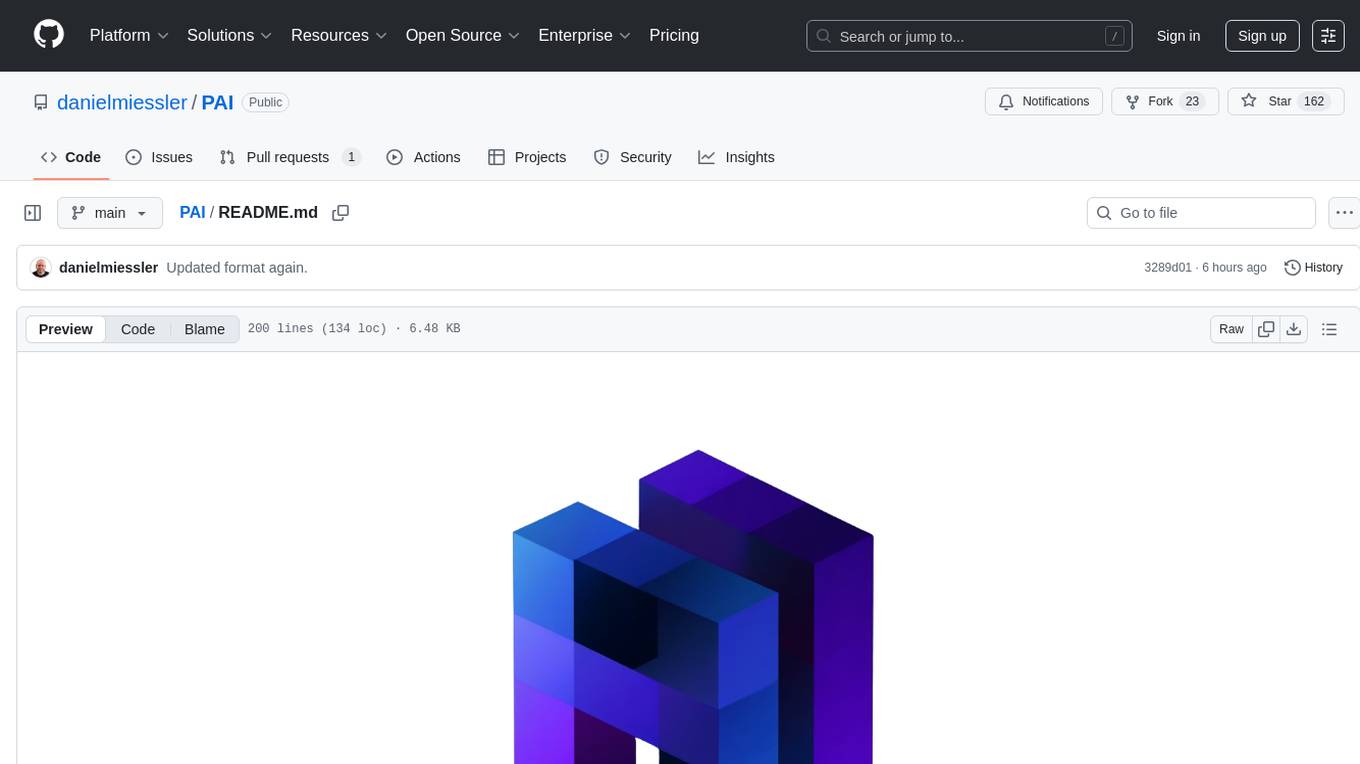
PAI
PAI is an open-source personal AI infrastructure designed to orchestrate personal and professional lives. It provides a scaffolding framework with real-world examples for life management, professional tasks, and personal goals. The core mission is to augment humans with AI capabilities to thrive in a world full of AI. PAI features UFC Context Architecture for persistent memory, specialized digital assistants for various tasks, an integrated tool ecosystem with MCP Servers, voice system, browser automation, and API integrations. The philosophy of PAI focuses on augmenting human capability rather than replacing it. The tool is MIT licensed and encourages contributions from the open-source community.
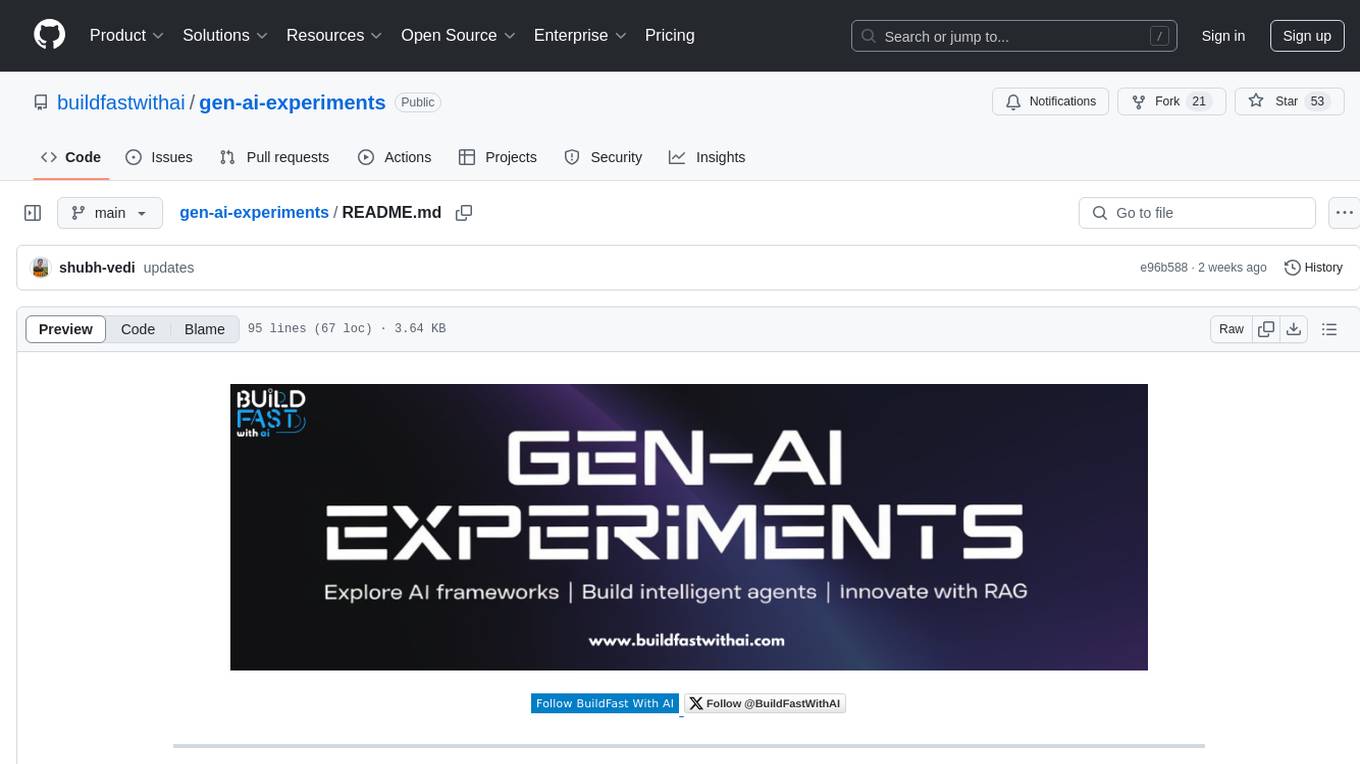
gen-ai-experiments
Gen-AI-Experiments is a structured collection of Jupyter notebooks and AI experiments designed to guide users through various AI tools, frameworks, and models. It offers valuable resources for both beginners and experienced practitioners, covering topics such as AI agents, model testing, RAG systems, real-world applications, and open-source tools. The repository includes folders with curated libraries, AI agents, experiments, LLM testing, open-source libraries, RAG experiments, and educhain experiments, each focusing on different aspects of AI development and application.
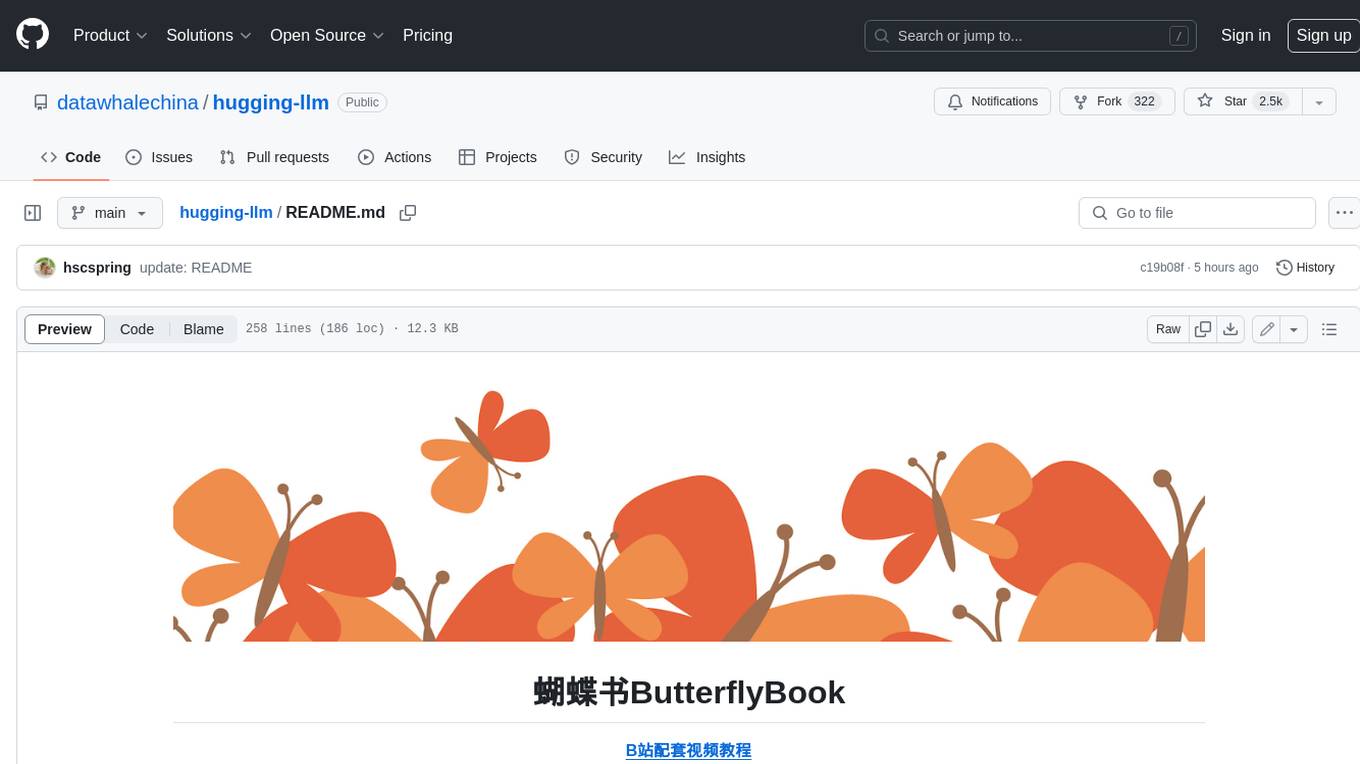
hugging-llm
HuggingLLM is a project that aims to introduce ChatGPT to a wider audience, particularly those interested in using the technology to create new products or applications. The project focuses on providing practical guidance on how to use ChatGPT-related APIs to create new features and applications. It also includes detailed background information and system design introductions for relevant tasks, as well as example code and implementation processes. The project is designed for individuals with some programming experience who are interested in using ChatGPT for practical applications, and it encourages users to experiment and create their own applications and demos.
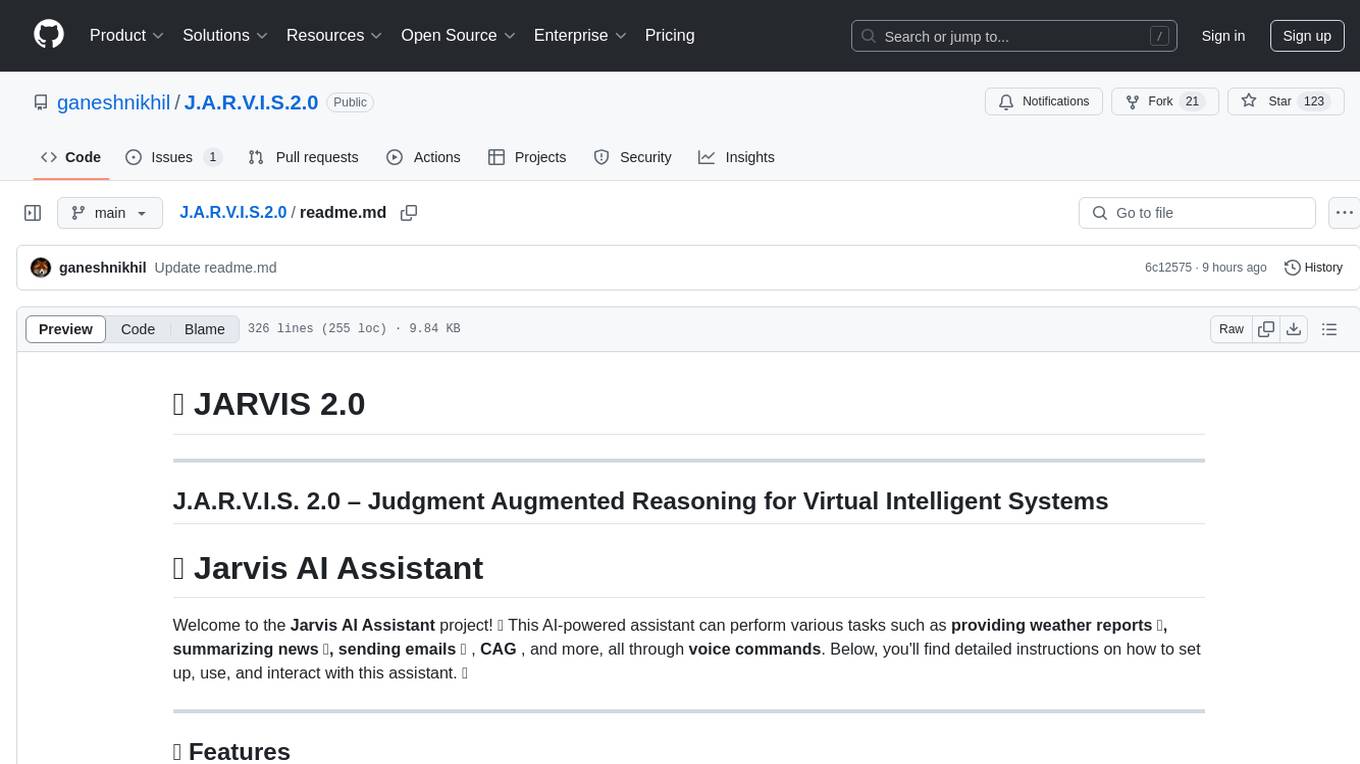
J.A.R.V.I.S.2.0
J.A.R.V.I.S. 2.0 is an AI-powered assistant designed for voice commands, capable of tasks like providing weather reports, summarizing news, sending emails, and more. It features voice activation, speech recognition, AI responses, and handles multiple tasks including email sending, weather reports, news reading, image generation, database functions, phone call automation, AI-based task execution, website & application automation, and knowledge-based interactions. The assistant also includes timeout handling, automatic input processing, and the ability to call multiple functions simultaneously. It requires Python 3.9 or later and specific API keys for weather, news, email, and AI access. The tool integrates Gemini AI for function execution and Ollama as a fallback mechanism. It utilizes a RAG-based knowledge system and ADB integration for phone automation. Future enhancements include deeper mobile integration, advanced AI-driven automation, improved NLP-based command execution, and multi-modal interactions.
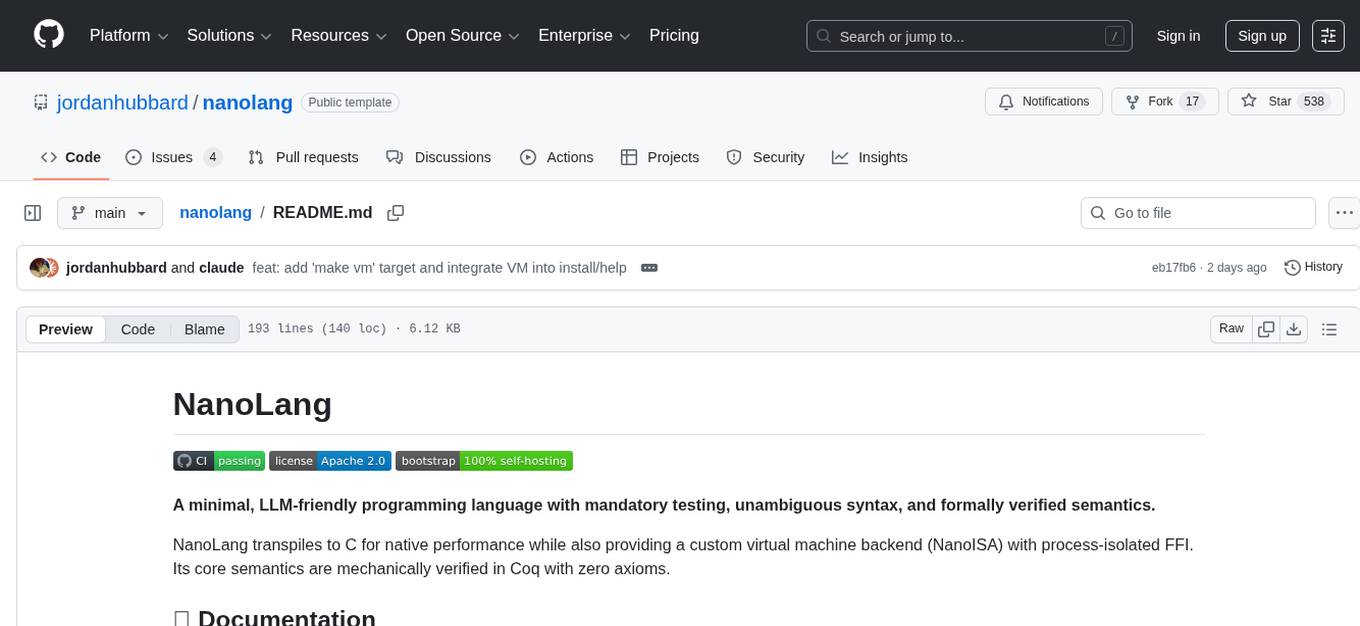
nanolang
NanoLang is a minimal, LLM-friendly programming language that transpiles to C for native performance. It features mandatory testing, unambiguous syntax, automatic memory management, LLM-powered autonomous optimization, dual notation for operators, static typing, C interop, and native performance. The language supports variables, functions with mandatory tests, control flow, structs, enums, generic types, and provides a clean, modern syntax optimized for both human readability and AI code generation.
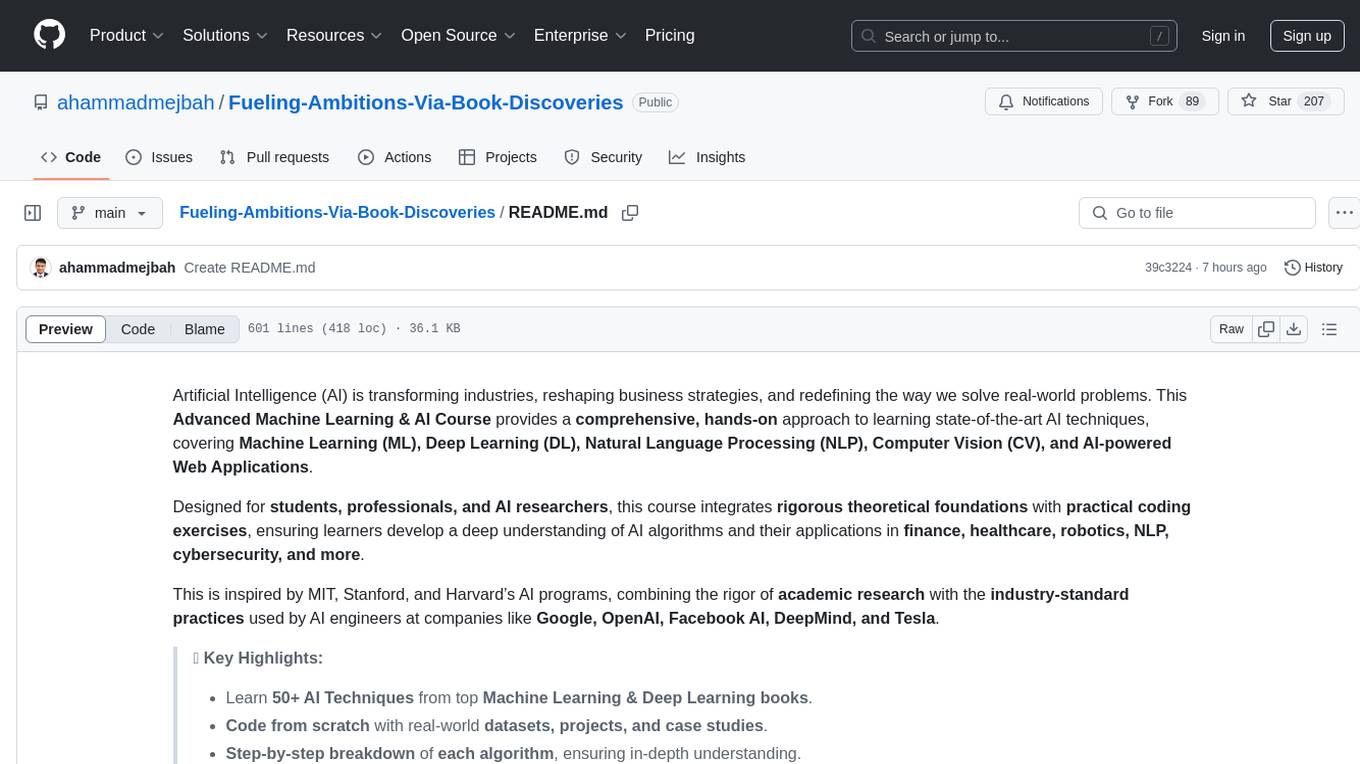
Fueling-Ambitions-Via-Book-Discoveries
Fueling-Ambitions-Via-Book-Discoveries is an Advanced Machine Learning & AI Course designed for students, professionals, and AI researchers. The course integrates rigorous theoretical foundations with practical coding exercises, ensuring learners develop a deep understanding of AI algorithms and their applications in finance, healthcare, robotics, NLP, cybersecurity, and more. Inspired by MIT, Stanford, and Harvard’s AI programs, it combines academic research rigor with industry-standard practices used by AI engineers at companies like Google, OpenAI, Facebook AI, DeepMind, and Tesla. Learners can learn 50+ AI techniques from top Machine Learning & Deep Learning books, code from scratch with real-world datasets, projects, and case studies, and focus on ML Engineering & AI Deployment using Django & Streamlit. The course also offers industry-relevant projects to build a strong AI portfolio.
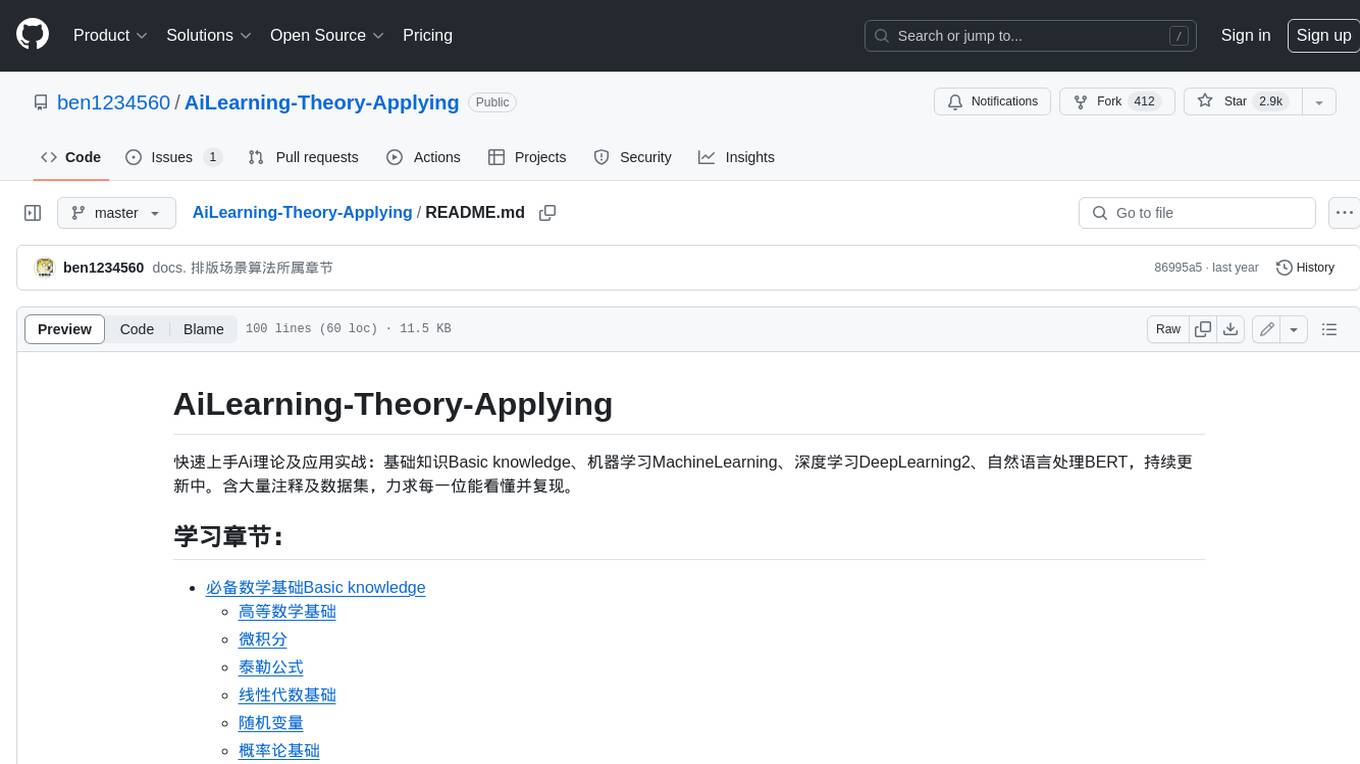
AiLearning-Theory-Applying
This repository provides a comprehensive guide to understanding and applying artificial intelligence (AI) theory, including basic knowledge, machine learning, deep learning, and natural language processing (BERT). It features detailed explanations, annotated code, and datasets to help users grasp the concepts and implement them in practice. The repository is continuously updated to ensure the latest information and best practices are covered.
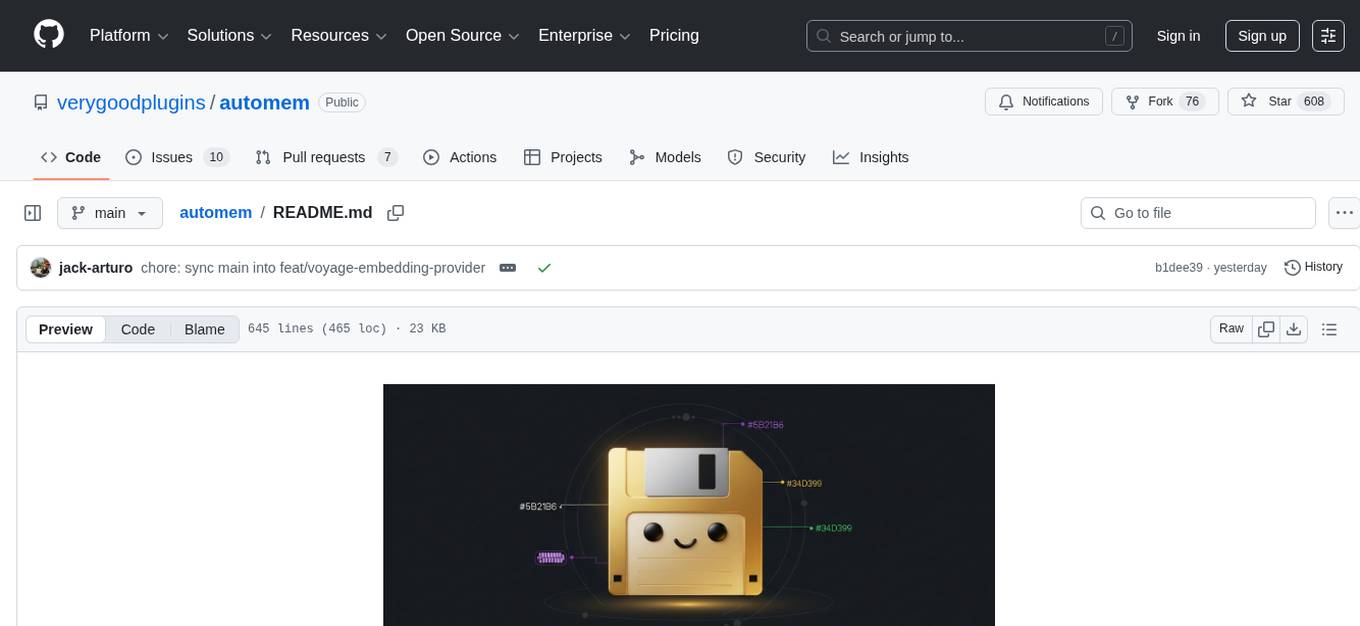
automem
AutoMem is a production-grade long-term memory system for AI assistants, achieving 90.53% accuracy on the LoCoMo benchmark. It combines FalkorDB (Graph) and Qdrant (Vectors) storage systems to store, recall, connect, learn, and perform with memories. AutoMem enables AI assistants to remember, connect, and evolve their understanding over time, similar to human long-term memory. It implements techniques from peer-reviewed memory research and offers features like multi-hop bridge discovery, knowledge graphs that evolve, 9-component hybrid scoring, memory consolidation cycles, background intelligence, 11 relationship types, and more. AutoMem is benchmark-proven, research-validated, and production-ready, with features like sub-100ms recall, concurrent writes, automatic retries, health monitoring, dual storage redundancy, and automated backups.
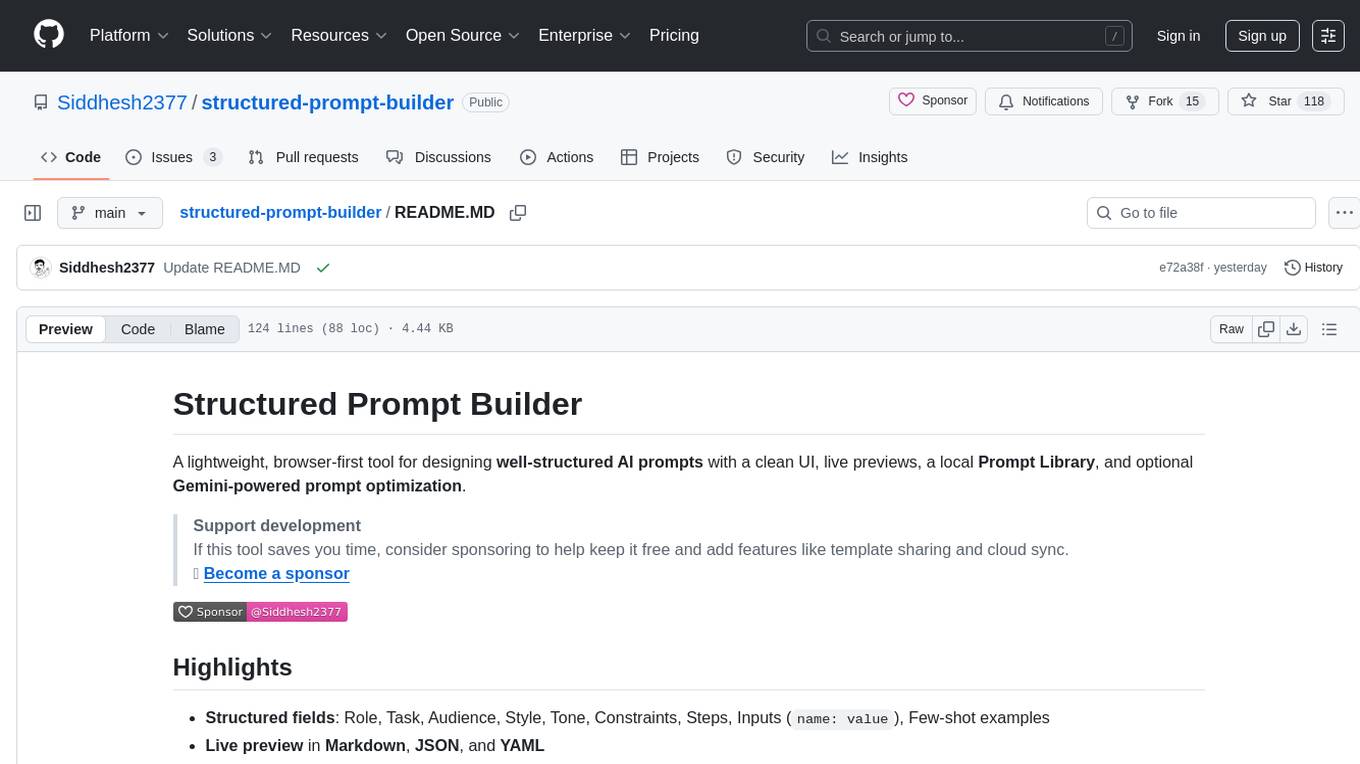
structured-prompt-builder
A lightweight, browser-first tool for designing well-structured AI prompts with a clean UI, live previews, a local Prompt Library, and optional Gemini-powered prompt optimization. It supports structured fields like Role, Task, Audience, Style, Tone, Constraints, Steps, Inputs, and Few-shot examples. Users can copy/download prompts in Markdown, JSON, and YAML formats, and utilize model parameters like Temperature, Top-p, Max tokens, Presence & Frequency penalties. The tool also features a Local Prompt Library for saving, loading, duplicating, and deleting prompts, as well as a Gemini Optimizer for cleaning grammar/clarity without altering the schema. It offers dark/light friendly styles and a focused reading mode for long prompts.
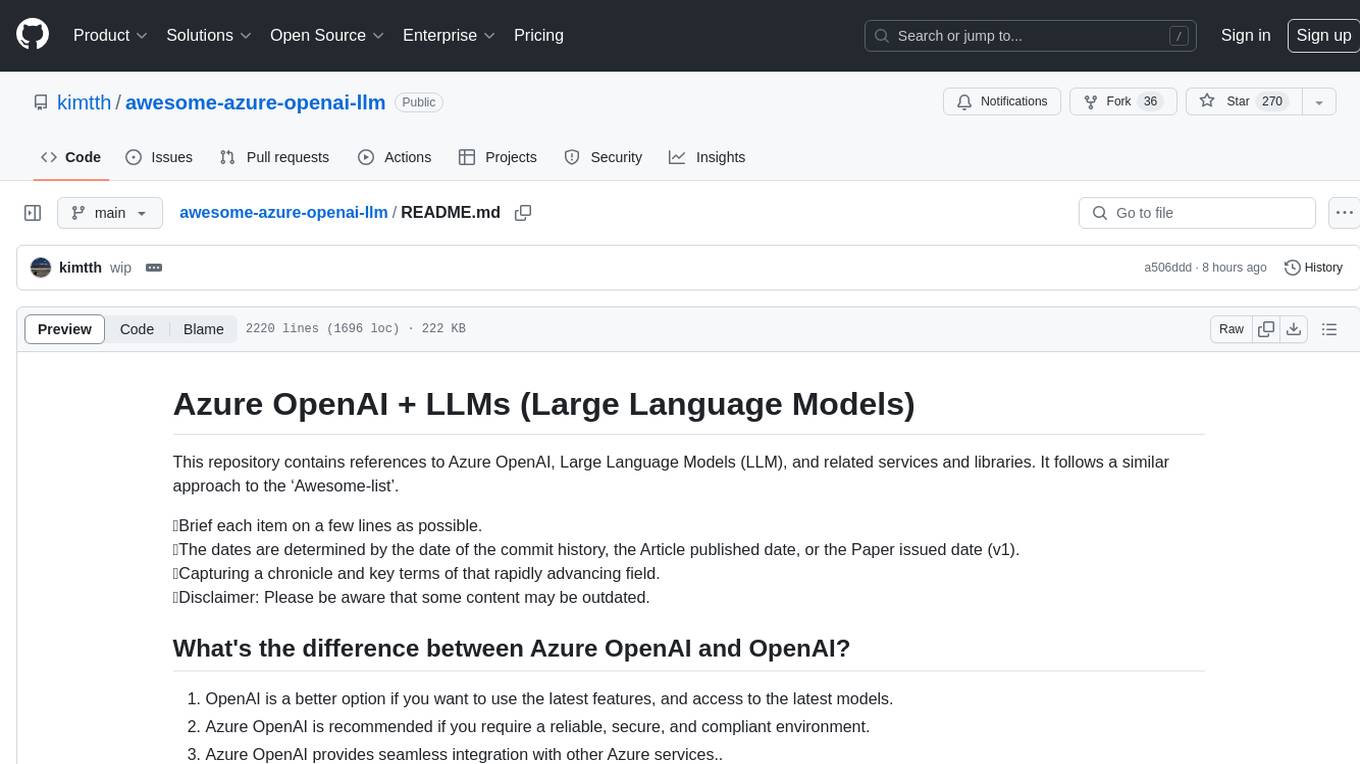
awesome-azure-openai-llm
This repository is a collection of references to Azure OpenAI, Large Language Models (LLM), and related services and libraries. It provides information on various topics such as RAG, Azure OpenAI, LLM applications, agent design patterns, semantic kernel, prompting, finetuning, challenges & abilities, LLM landscape, surveys & references, AI tools & extensions, datasets, and evaluations. The content covers a wide range of topics related to AI, machine learning, and natural language processing, offering insights into the latest advancements in the field.
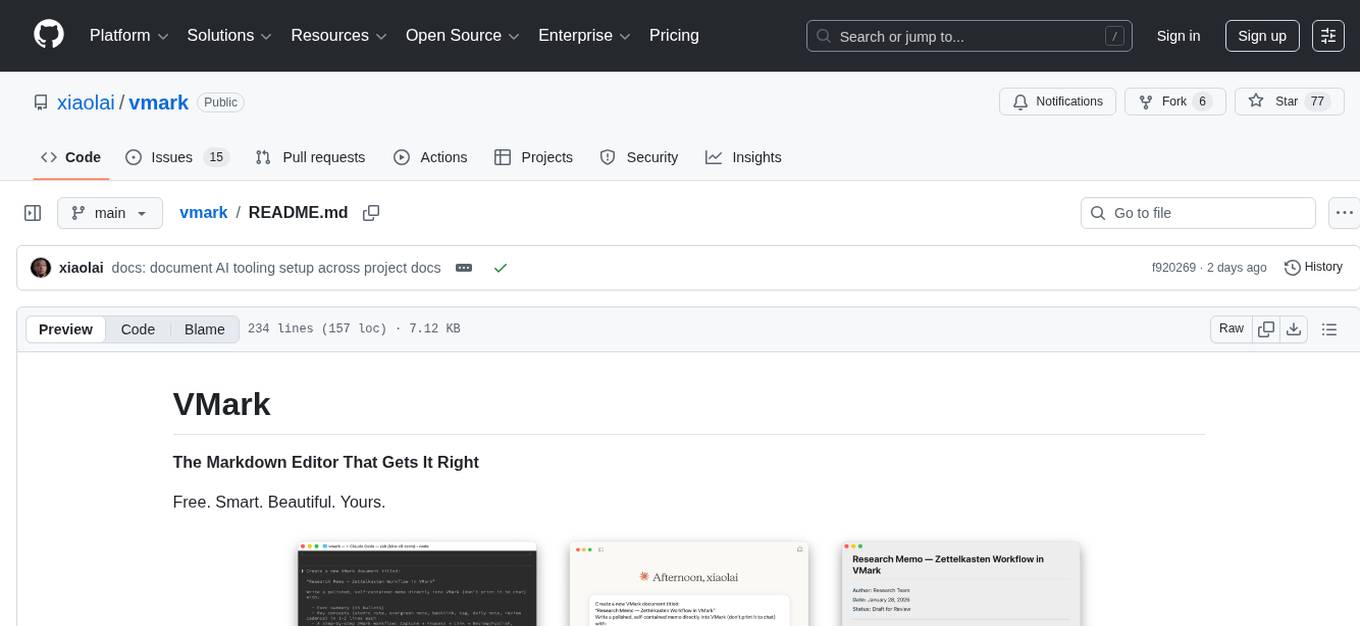
vmark
VMark is a modern, local-first Markdown editor designed for the AI era. It combines the simplicity of rich text editing with the power of source mode. Built to work seamlessly with AI assistants, it understands Chinese, Japanese, and Korean text. Users can switch between rich text and source mode effortlessly, with beautifully designed themes and offline functionality. The tool offers advanced features like AI integration, CJK text handling, customization options, and various export formats.
For similar tasks
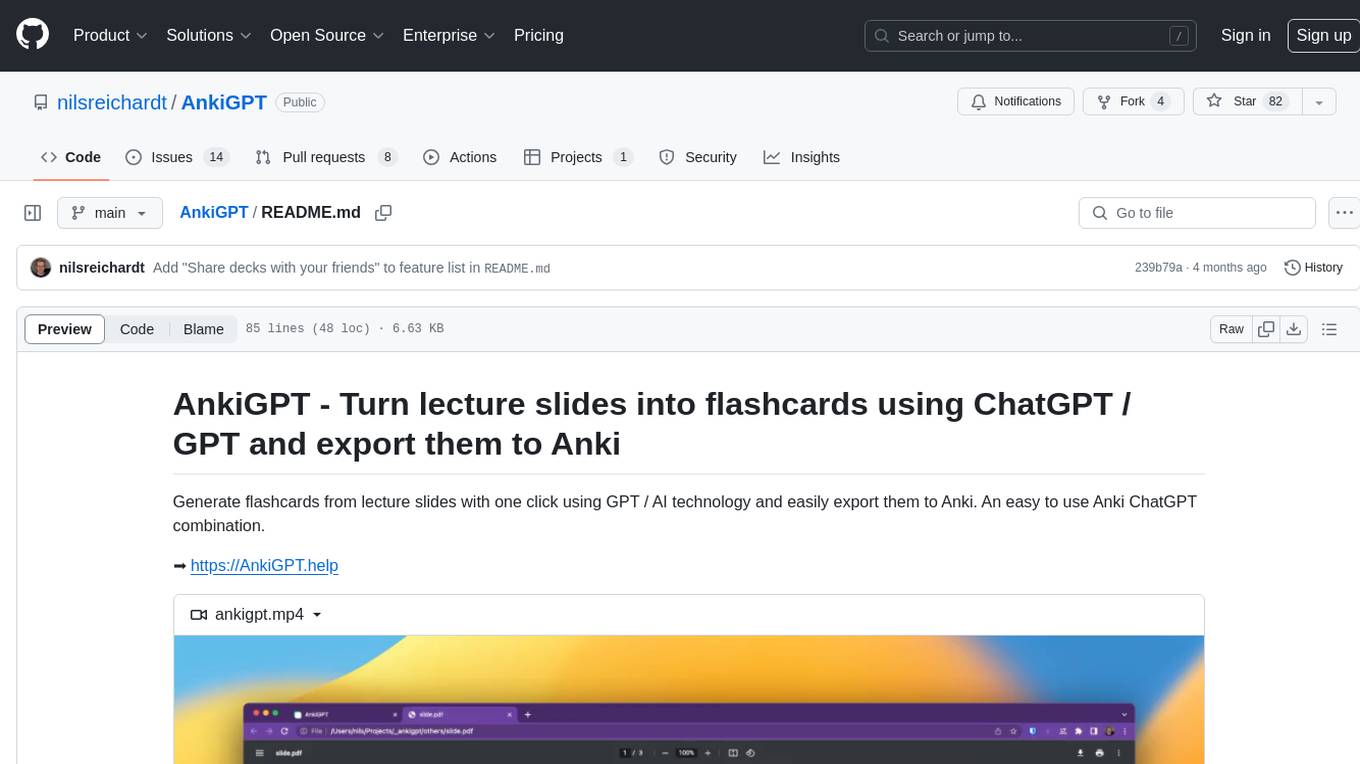
AnkiGPT
AnkiGPT is a tool that leverages GPT-3.5 or GPT-4 by OpenAI to generate flashcards from lecture slides or text input. Users can easily export the generated flashcards to Anki for effective learning. The tool allows users to edit, delete, and share flashcards, as well as generate mnemonics. AnkiGPT supports nearly all languages and ensures user privacy by not using submitted content for AI training. While powerful, the tool has limitations such as occasional errors in generated flashcards and challenges with mathematical equations. AnkiGPT is designed specifically for Anki flashcard app integration and encourages users to review and verify flashcard information for accuracy.
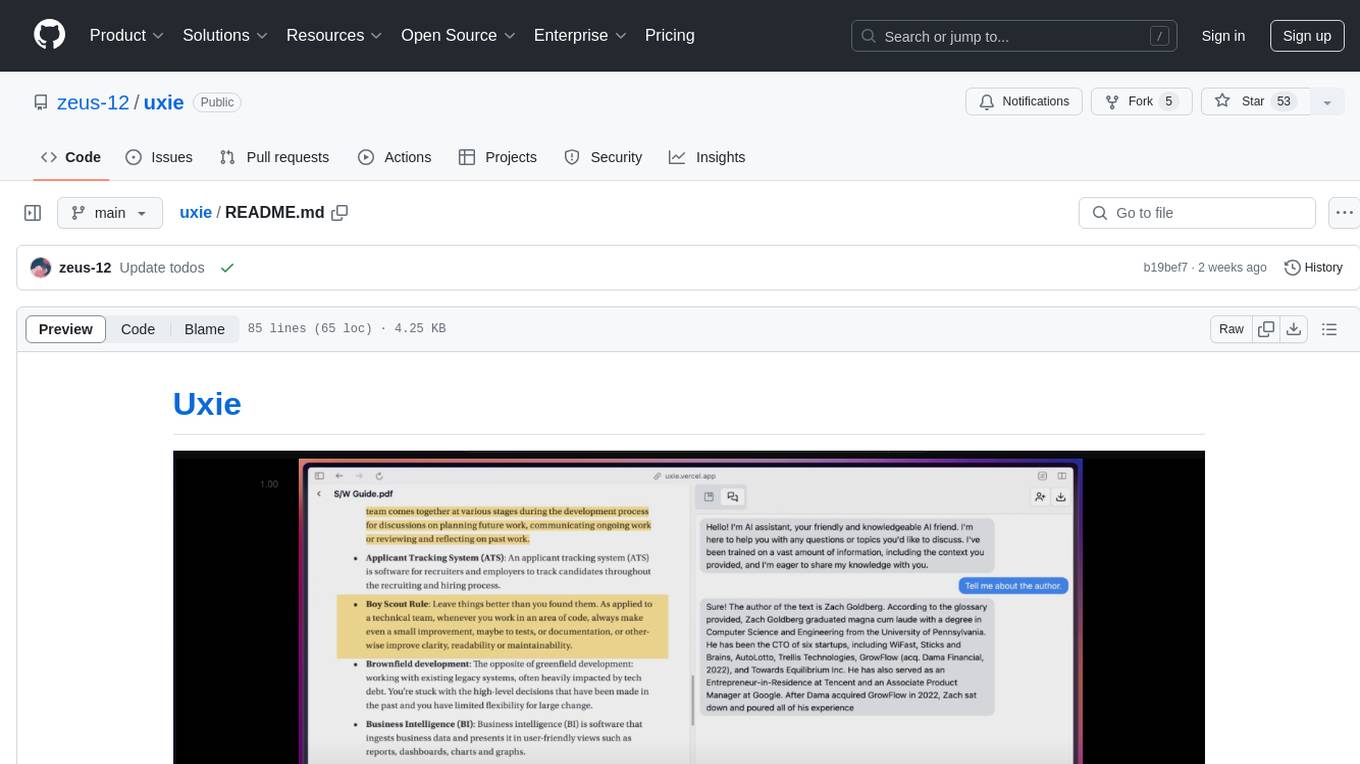
uxie
Uxie is a PDF reader app designed to revolutionize the learning experience. It offers features such as annotation, note-taking, collaboration tools, integration with LLM for enhanced learning, and flashcard generation with LLM feedback. Built using Nextjs, tRPC, Zod, TypeScript, Tailwind CSS, React Query, React Hook Form, Supabase, Prisma, and various other tools. Users can take notes, summarize PDFs, chat and collaborate with others, create custom blocks in the editor, and use AI-powered text autocompletion. The tool allows users to craft simple flashcards, test knowledge, answer questions, and receive instant feedback through AI evaluation.

vocabulary-book-by-deepseek
Vocabulary Book by DeepSeek is a manual for CET-4, postgraduate entrance examination, and TOEFL vocabulary, providing word meanings, roots, example sentences, mnemonic aids, and mnemonic images. The project uses Cline + DeepSeek-R1-16b for over 80% of the code to automatically encode the vocabulary manual. The generated manual includes vocabulary from A to Z for CET-4, CET-6, postgraduate entrance examination, and TOEFL, along with features to generate Anki cards and PDFs. The tool also allows for the creation of mnemonic images for each word and articles.
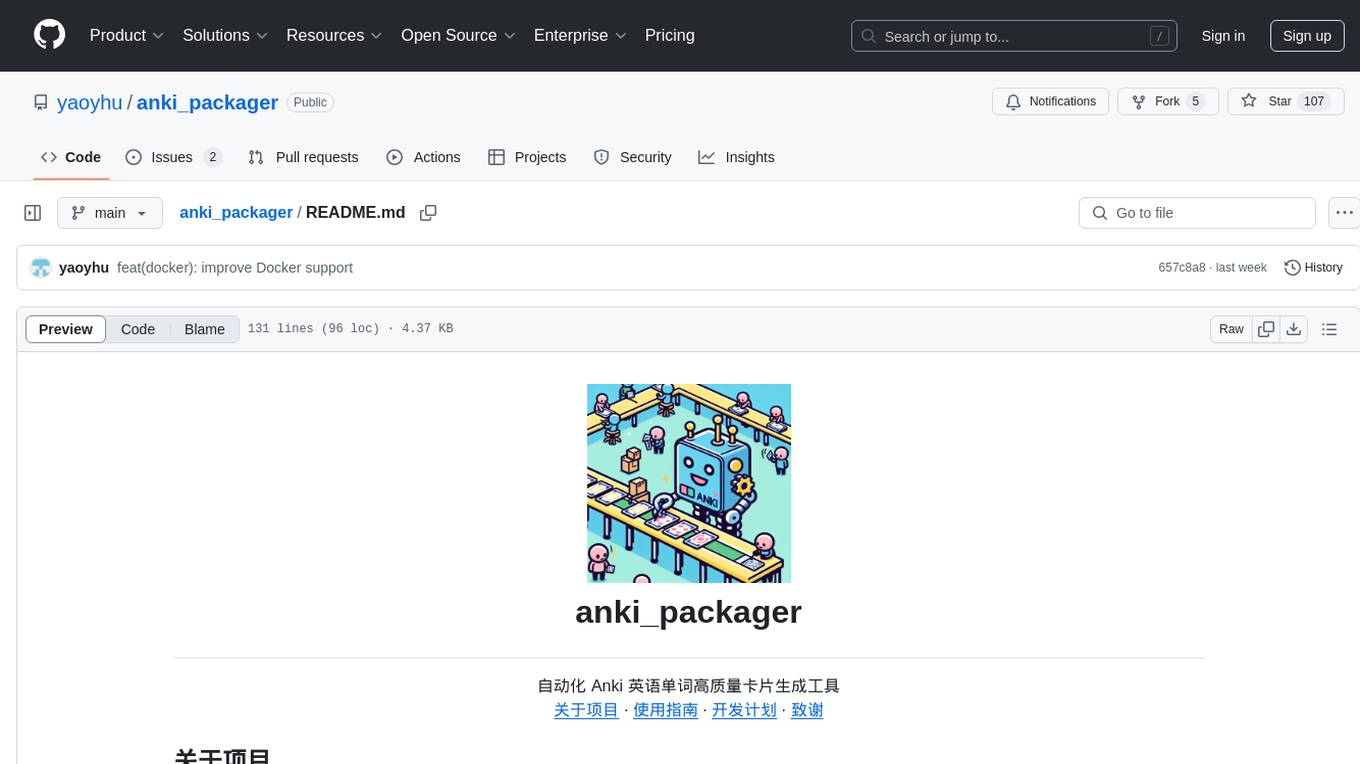
anki_packager
anki_packager is an intelligent tool for generating high-quality Anki flashcards for English vocabulary. It integrates multiple curated dictionaries, provides automated learning experiences, supports various features like Google TTS pronunciation and AI models for word summarization and story generation, offers convenient data import from other sources, ensures a good command-line interface, and can be run using Docker. Each flashcard includes detailed learning resources such as definitions, tenses, AI-generated roots for mnemonic aids, phrases, example sentences, word differentiations, and English explanations with AI-generated stories.
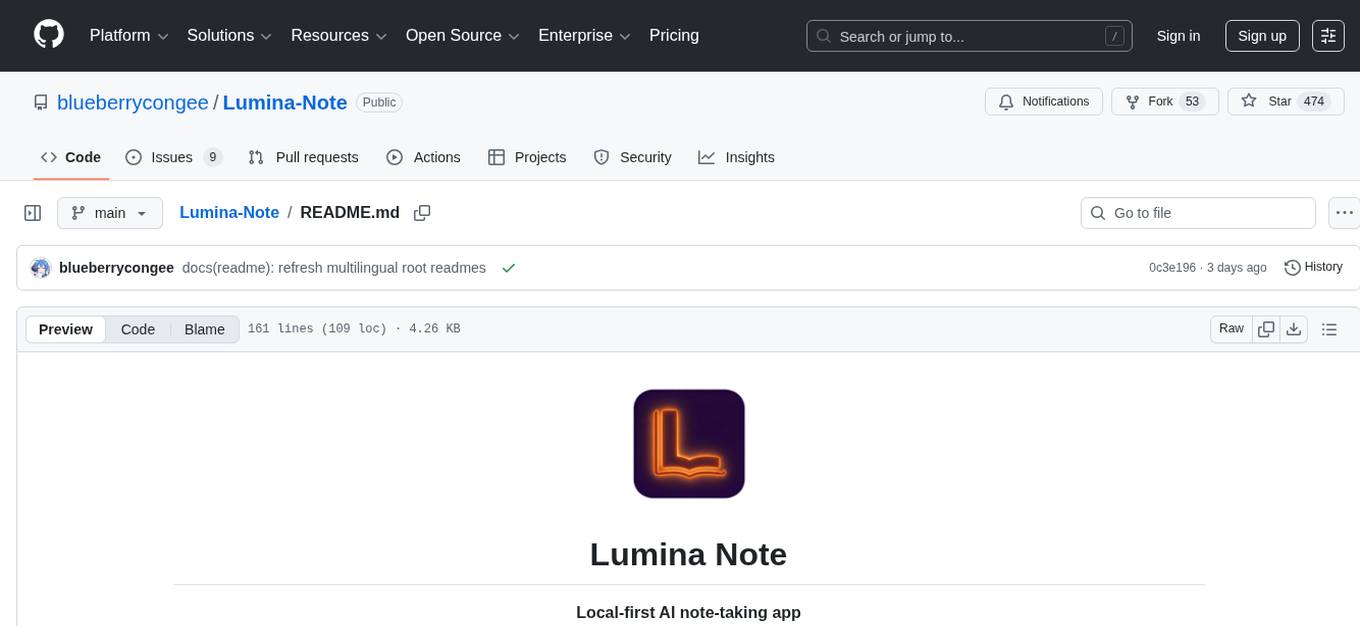
Lumina-Note
Lumina Note is a local-first AI note-taking app designed to help users write, connect, and evolve knowledge with AI capabilities while ensuring data ownership. It offers a knowledge-centered workflow with features like Markdown editor, WikiLinks, and graph view. The app includes AI workspace modes such as Chat, Agent, Deep Research, and Codex, along with support for multiple model providers. Users can benefit from bidirectional links, LaTeX support, graph visualization, PDF reader with annotations, real-time voice input, and plugin ecosystem for extended functionalities. Lumina Note is built on Tauri v2 framework with a tech stack including React 18, TypeScript, Tailwind CSS, and SQLite for vector storage.
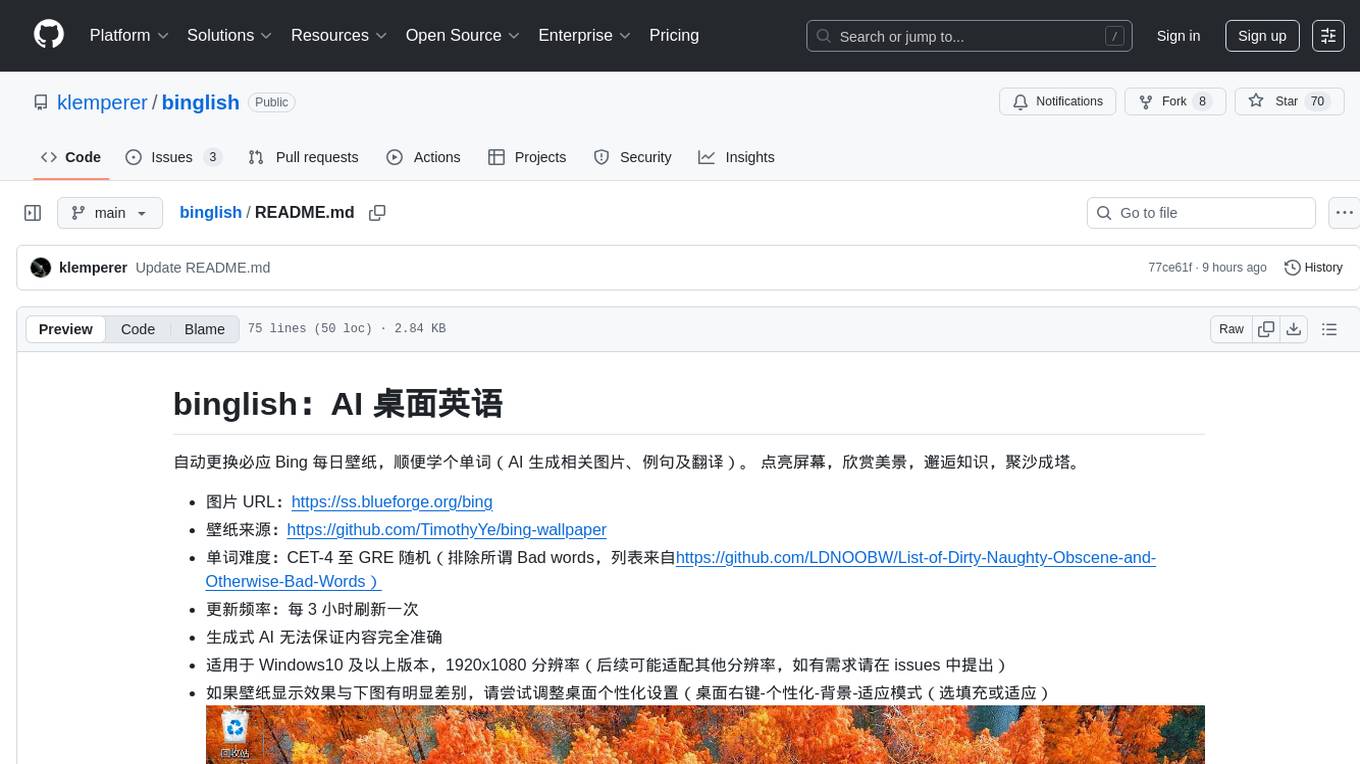
binglish
binglish is a desktop English learning tool that automatically changes the Bing daily wallpaper while helping users learn new words through AI-generated images, example sentences, and translations. Users can enjoy beautiful scenery, acquire knowledge, and build vocabulary towers. The tool excludes bad words and offers words ranging from CET-4 to GRE difficulty levels. It refreshes every 3 hours and is designed for Windows 10 and above with a resolution of 1920x1080. The AI-generated content may not be completely accurate.
For similar jobs
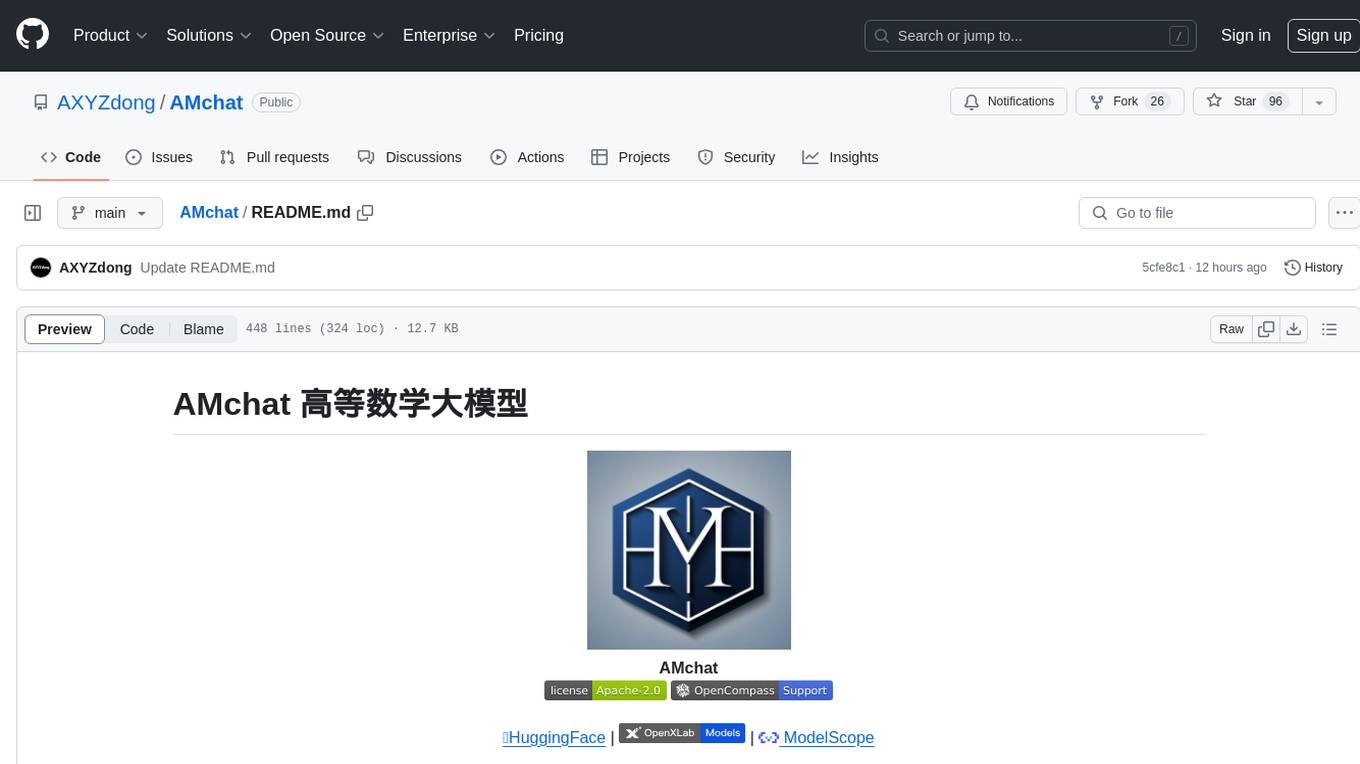
AMchat
AMchat is a large language model that integrates advanced math concepts, exercises, and solutions. The model is based on the InternLM2-Math-7B model and is specifically designed to answer advanced math problems. It provides a comprehensive dataset that combines Math and advanced math exercises and solutions. Users can download the model from ModelScope or OpenXLab, deploy it locally or using Docker, and even retrain it using XTuner for fine-tuning. The tool also supports LMDeploy for quantization, OpenCompass for evaluation, and various other features for model deployment and evaluation. The project contributors have provided detailed documentation and guides for users to utilize the tool effectively.
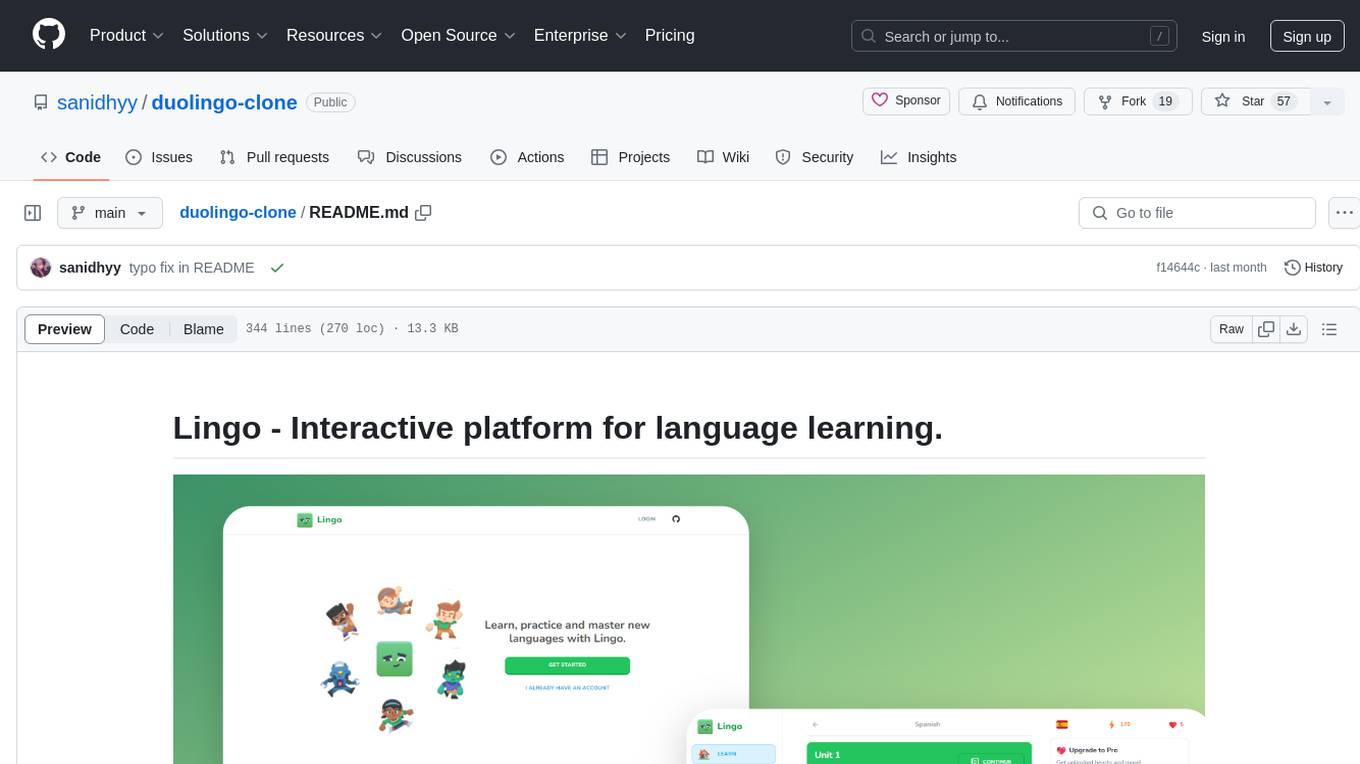
duolingo-clone
Lingo is an interactive platform for language learning that provides a modern UI/UX experience. It offers features like courses, quests, and a shop for users to engage with. The tech stack includes React JS, Next JS, Typescript, Tailwind CSS, Vercel, and Postgresql. Users can contribute to the project by submitting changes via pull requests. The platform utilizes resources from CodeWithAntonio, Kenney Assets, Freesound, Elevenlabs AI, and Flagpack. Key dependencies include @clerk/nextjs, @neondatabase/serverless, @radix-ui/react-avatar, and more. Users can follow the project creator on GitHub and Twitter, as well as subscribe to their YouTube channel for updates. To learn more about Next.js, users can refer to the Next.js documentation and interactive tutorial.
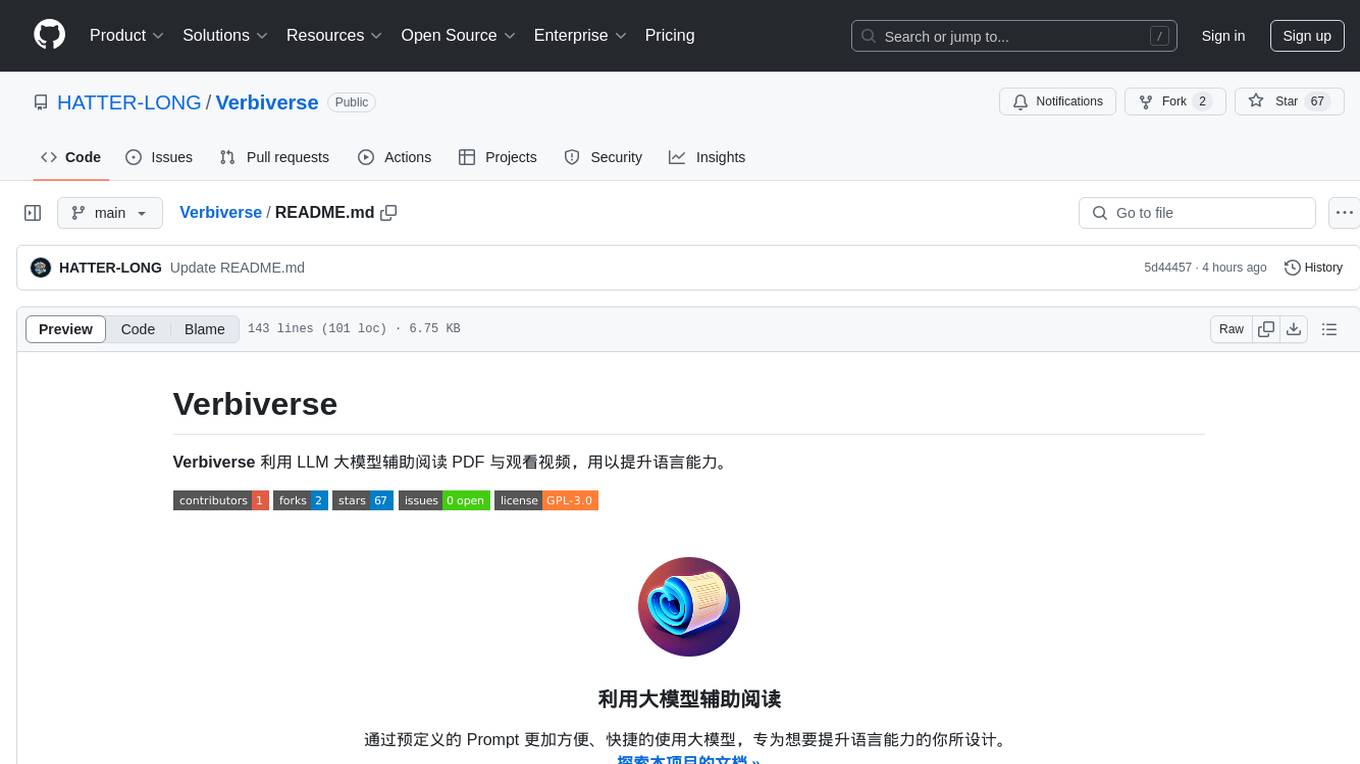
Verbiverse
Verbiverse is a tool that uses a large language model to assist in reading PDFs and watching videos, aimed at improving language proficiency. It provides a more convenient and efficient way to use large models through predefined prompts, designed for those looking to enhance their language skills. The tool analyzes unfamiliar words and sentences in foreign language PDFs or video subtitles, providing better contextual understanding compared to traditional dictionary translations or ambiguous meanings. It offers features such as automatic loading of subtitles, word analysis by clicking or double-clicking, and a word database for collecting words. Users can run the tool on Windows x86_64 or ubuntu_22.04 x86_64 platforms by downloading the precompiled packages or by cloning the source code and setting up a virtual environment with Python. It is recommended to use a local model or smaller PDF files for testing due to potential token consumption issues with large files.
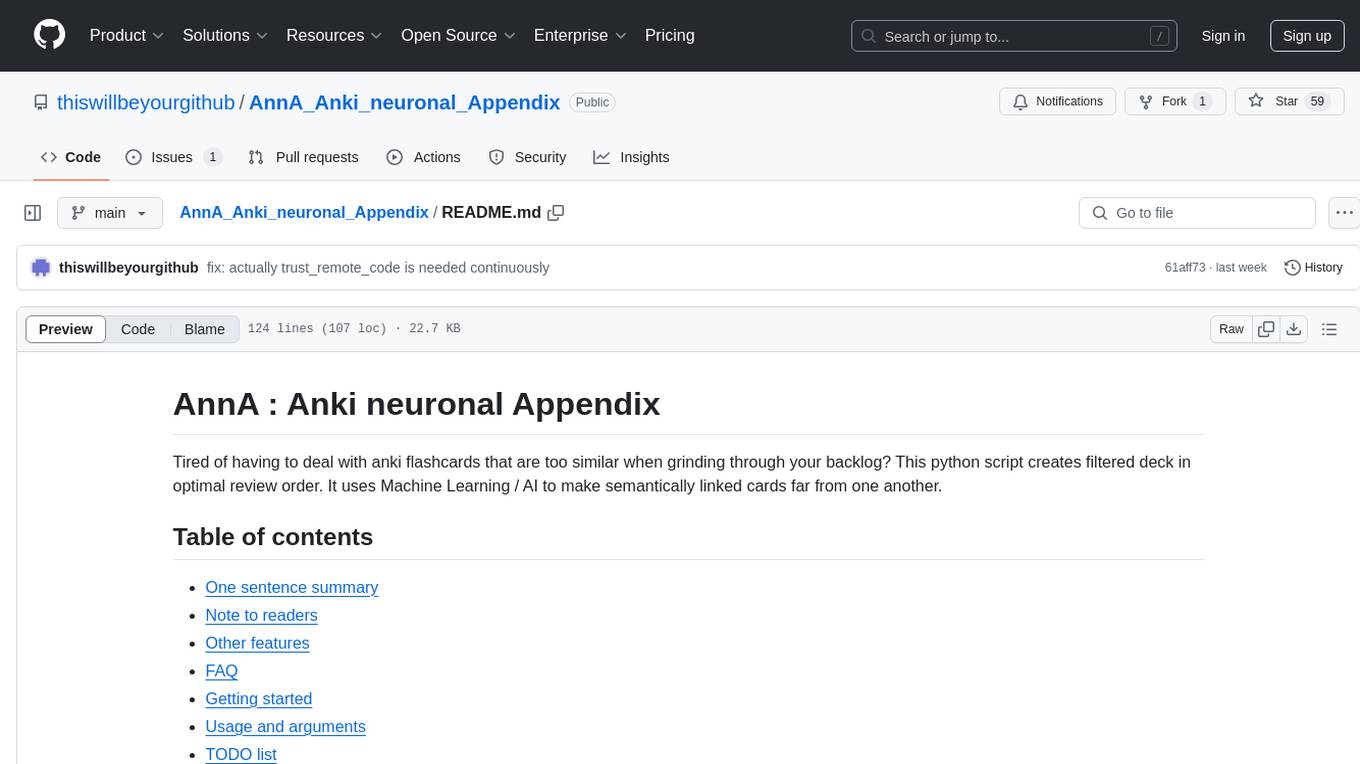
AnnA_Anki_neuronal_Appendix
AnnA is a Python script designed to create filtered decks in optimal review order for Anki flashcards. It uses Machine Learning / AI to ensure semantically linked cards are reviewed far apart. The script helps users manage their daily reviews by creating special filtered decks that prioritize reviewing cards that are most different from the rest. It also allows users to reduce the number of daily reviews while increasing retention and automatically identifies semantic neighbors for each note.
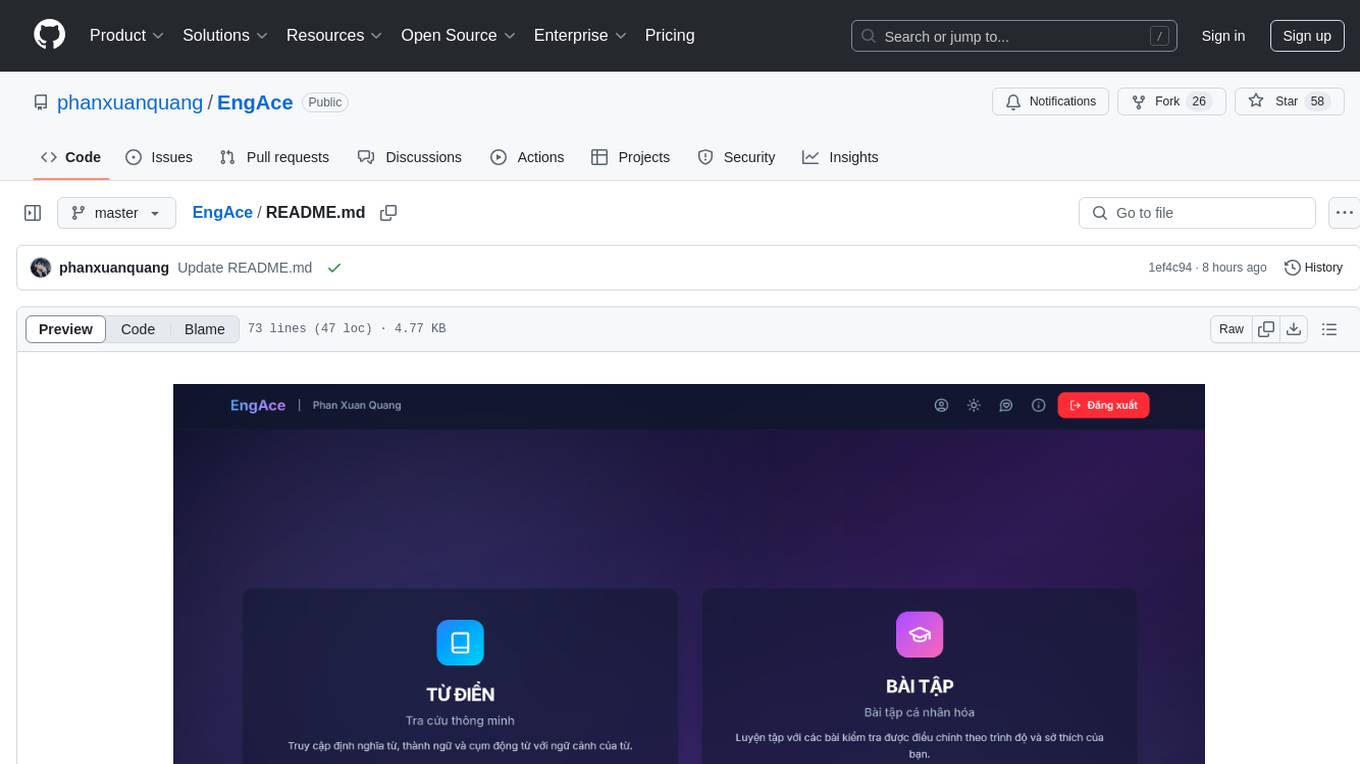
EngAce
EngAce is a cutting-edge, generative AI-powered application revolutionizing Vietnamese English learning. It offers personalized learning experiences combining AI with comprehensive features. The repository contains source code, documentation, and resources for the app.
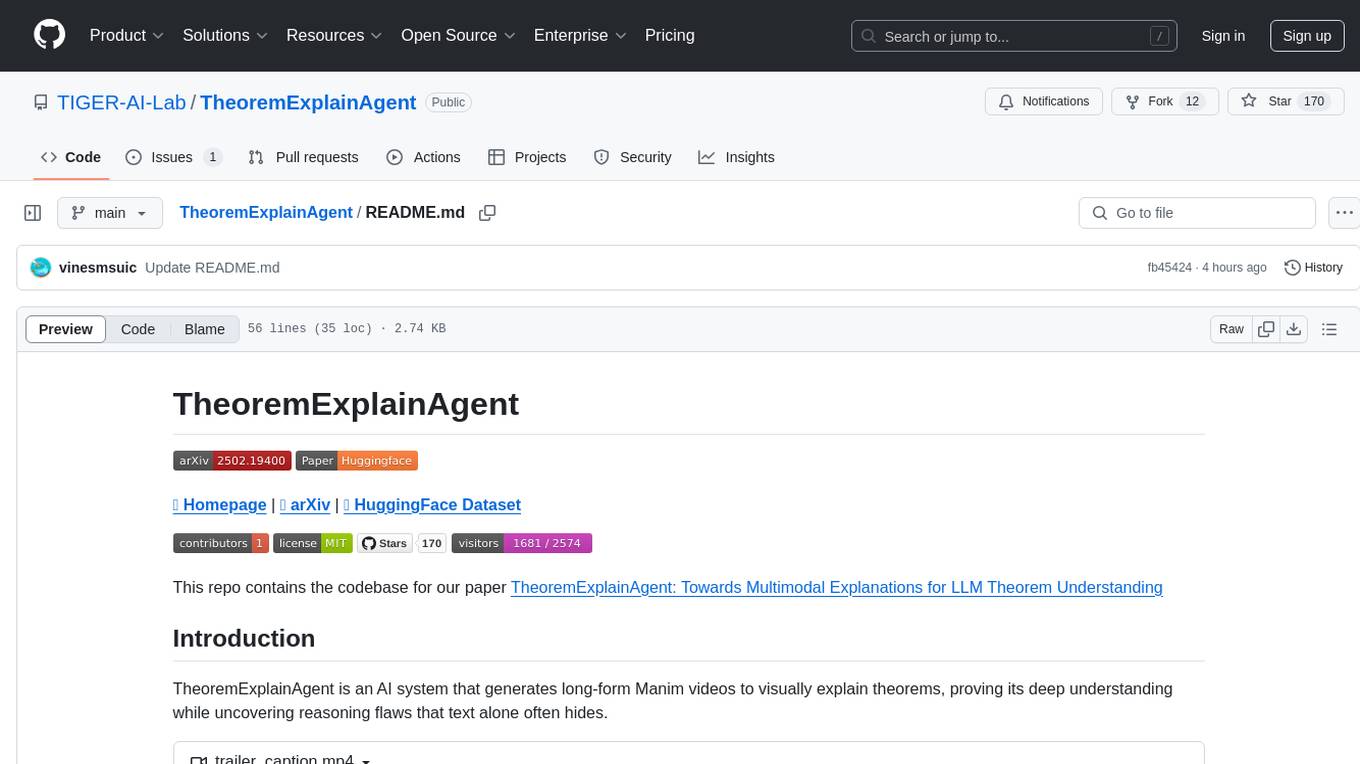
TheoremExplainAgent
TheoremExplainAgent is an AI system that generates long-form Manim videos to visually explain theorems, proving its deep understanding while uncovering reasoning flaws that text alone often hides. The codebase for the paper 'TheoremExplainAgent: Towards Multimodal Explanations for LLM Theorem Understanding' is available in this repository. It provides a tool for creating multimodal explanations for theorem understanding using AI technology.

vocabulary-book-by-deepseek
Vocabulary Book by DeepSeek is a manual for CET-4, postgraduate entrance examination, and TOEFL vocabulary, providing word meanings, roots, example sentences, mnemonic aids, and mnemonic images. The project uses Cline + DeepSeek-R1-16b for over 80% of the code to automatically encode the vocabulary manual. The generated manual includes vocabulary from A to Z for CET-4, CET-6, postgraduate entrance examination, and TOEFL, along with features to generate Anki cards and PDFs. The tool also allows for the creation of mnemonic images for each word and articles.
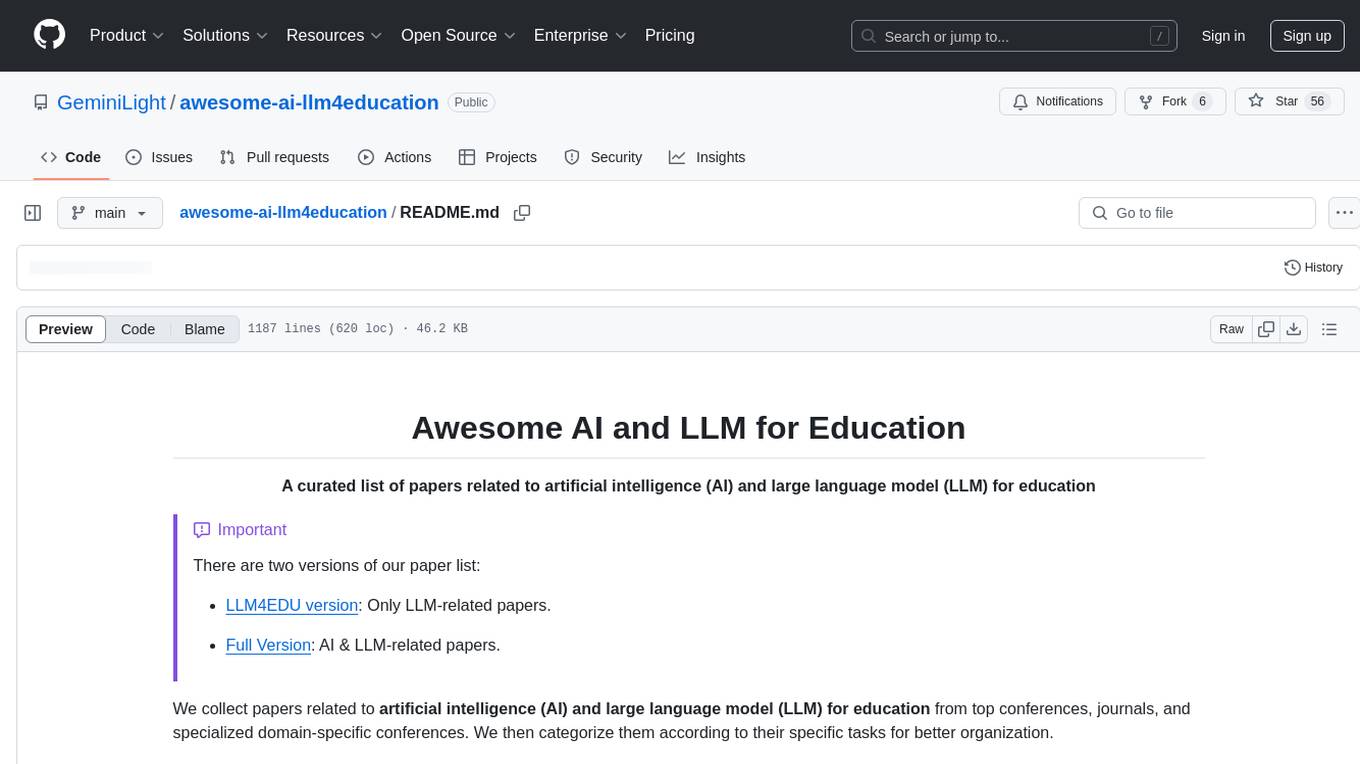
awesome-ai-llm4education
The 'awesome-ai-llm4education' repository is a curated list of papers related to artificial intelligence (AI) and large language models (LLM) for education. It collects papers from top conferences, journals, and specialized domain-specific conferences, categorizing them based on specific tasks for better organization. The repository covers a wide range of topics including tutoring, personalized learning, assessment, material preparation, specific scenarios like computer science, language, math, and medicine, aided teaching, as well as datasets and benchmarks for educational research.
